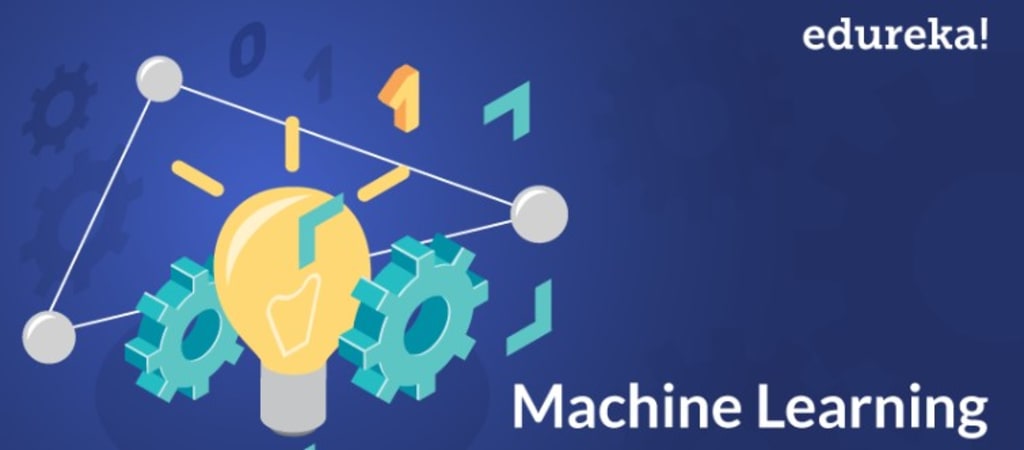
Q-learning is a fundamental reinforcement learning algorithm in the field of machine learning. It is designed to solve Markov Decision Processes (MDPs), which are mathematical models used to represent decision-making problems in environments where the outcomes are uncertain. The goal of Q-learning is to learn an optimal policy for an agent to take actions in an environment to maximize a cumulative reward over time.
The core idea behind Q-learning is to iteratively update an action-value function called the Q-function. This function estimates the expected cumulative reward an agent will receive by taking a particular action in a given state. Through a process of exploration and exploitation, the agent explores the environment, observes the rewards and state transitions, and updates its Q-function accordingly. Apart from it by obtaining a Machine Learning Course, you can advance your career in Machine Learning. With this course, you can demonstrate your expertise in designing and implementing a model building, creating AI and machine learning solutions, performing feature engineering, many more fundamental concepts.
The Q-learning algorithm uses a greedy policy, meaning the agent selects the action with the highest Q-value in each state. However, to encourage exploration, it often introduces an exploration-exploitation trade-off by using techniques like epsilon-greedy or softmax exploration strategies.
During the learning process, the Q-function is iteratively updated using the Bellman equation, which relates the value of a state-action pair to the values of the next state-action pairs. This iterative process continues until the Q-function converges to the optimal action-value function, providing the agent with the best policy to make decisions in the environment.
Q-learning has been widely applied to various real-world problems, such as robotics, game playing, and control systems, where the agent can learn to make intelligent decisions in complex and uncertain environments without the need for explicit supervision.
Q-learning is a foundational algorithm in the realm of reinforcement learning, which focuses on training intelligent agents to make optimal decisions in dynamic and uncertain environments. It is widely used for tasks where an agent must learn from trial and error, without the need for labeled data, and gradually improve its decision-making abilities to maximize long-term rewards.
At the core of Q-learning lies the concept of a Markov Decision Process (MDP). An MDP is a mathematical framework used to model sequential decision-making problems where the agent interacts with an environment. The environment comprises states, actions, rewards, and transition probabilities. The agent's goal is to learn a policy that maps states to actions, maximizing the cumulative reward over time.
The central component of Q-learning is the Q-function (also known as the action-value function), denoted as Q(s, a). This function estimates the expected cumulative reward an agent will receive by taking action 'a' in state 's', and following the optimal policy from that point onwards. Initially, the Q-function is arbitrarily initialized, and the agent explores the environment to gather experience.
During exploration, the agent employs an exploration-exploitation trade-off. It can either choose actions based on the current estimate of the Q-function (exploitation) or take random actions to discover new states and update its Q-values (exploration). This trade-off is often managed using an exploration strategy, such as epsilon-greedy, where the agent selects the action with the highest Q-value with a probability of (1 - ε) and takes a random action with a probability of ε.
As the agent interacts with the environment, it receives rewards and observes new states. Q-learning leverages the principle of the Bellman equation to iteratively update the Q-function. The Bellman equation expresses the relationship between the Q-value of a state-action pair and the Q-values of the subsequent state-action pairs. The Q-value of a state-action pair is updated by combining the immediate reward obtained by taking that action in that state and the maximum Q-value of the next state, discounted by a factor called the discount factor (usually denoted by γ).
The Q-function update is done using the following formula:
Q(s, a) = Q(s, a) + α * [r + γ * max(Q(s', a')) - Q(s, a)]
Where:
- Q(s, a) is the Q-value of state 's' and action 'a'.
- α (alpha) is the learning rate, controlling the impact of new experiences on the Q-values.
- r is the immediate reward received after taking action 'a' in state 's'.
- s' is the next state that results from taking action 'a' in state 's'.
- a' is the action that the agent would choose in state 's' based on the current Q-function estimate.
The Q-learning process continues iteratively, where the agent explores the environment, updates the Q-values based on the observed rewards and transitions, and refines its policy. The algorithm eventually converges to the optimal Q-function, which reflects the best policy for the agent to take in any state to maximize cumulative rewards.
Q-learning has proven to be a powerful technique, applied to various real-world problems, such as autonomous robotics, game playing (e.g., in reinforcement learning competitions), and resource management. It excels in scenarios where an agent must learn through trial and error and adapt its behavior in complex and uncertain environments, making it a fundamental tool in the field of machine learning.





Comments
There are no comments for this story
Be the first to respond and start the conversation.